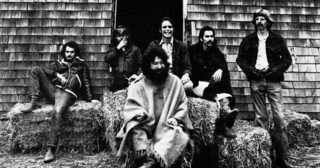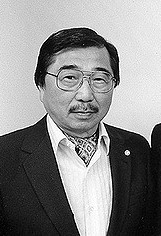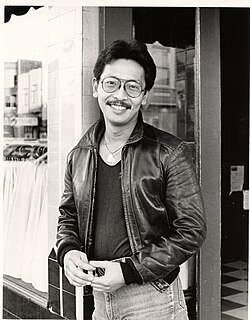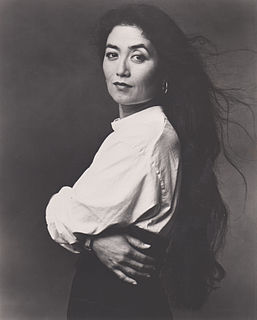Related Research Articles

The Grateful Dead was an American rock band formed in 1965 in Palo Alto, California. The band is known for its eclectic style, which fused elements of rock, folk, country, jazz, bluegrass, blues, rock and roll, gospel, reggae, world music, and psychedelia; for live performances of lengthy instrumental jams that typically incorporated modal and tonal improvisation; and for its devoted fan base, known as "Deadheads". "Their music", writes Lenny Kaye, "touches on ground that most other groups don't even know exists." These various influences were distilled into a diverse and psychedelic whole that made the Grateful Dead "the pioneering Godfathers of the jam band world". The band was ranked 57th by Rolling Stone magazine in its "The Greatest Artists of All Time" issue. The band was inducted into the Rock and Roll Hall of Fame in 1994 and a recording of their May 8, 1977 performance at Cornell University's Barton Hall was added to the National Recording Registry of the Library of Congress in 2012. Despite having only one top-40 single in their thirty year career, "Touch of Grey", the Grateful Dead remained among the highest grossing American touring acts for multiple decades and gained a committed fanbase by word of mouth and the exchange of live recordings due to the band's permissive stance on taping.

David Henry Hwang is an American playwright, librettist, screenwriter, and theater professor at Columbia University in New York City. He has won three Obie Awards for his plays FOB, Golden Child, and Yellow Face. Three of his works—M. Butterfly, Yellow Face, and Soft Power—have been finalists for the Pulitzer Prize for Drama.

The Music Center is one of the largest performing arts centers in the United States. Located in downtown Los Angeles, The Music Center is composed of the Dorothy Chandler Pavilion, Ahmanson Theatre, Mark Taper Forum, Roy and Edna Disney / CalArts Theatre, and Walt Disney Concert Hall.

Gordon Kiyoshi Hirabayashi was an American sociologist, best known for his principled resistance to the Japanese American internment during World War II, and the court case which bears his name, Hirabayashi v. United States.
Robert Woodruff is an American theater director.

Christopher Inadomi Tashima is a Japanese American actor and director. He is co-founder of the entertainment company Cedar Grove Productions and Artistic Director of its Asian American theatre company, Cedar Grove OnStage. Tashima directed, co-wrote, and starred in the 26-minute film Visas and Virtue for which he and producer Chris Donahue won the 1998 Academy Award for Live Action Short Film.
Tim Toyama is a playwright and producer. He is Sansei living in Los Angeles, California. He is co-founder of the Asian American media company Cedar Grove Productions, and its sister Asian American theatre company, Cedar Grove OnStage. He attended California State University, Northridge (CSUN) as an English major.

Cedar Grove Productions is an independent production company based in Los Angeles, California, specializing in media and theatre arts representing the Asian Pacific American community. Media projects are educational, with Visual Communications (VC) serving as a non-profit fiscal sponsor.

The Grateful Crane Ensemble is a non-profit 501(c)(3) Asian American theatre company based in Southern California, established in July, 2001.
Hiroshi Kashiwagi was a Nisei poet, playwright and actor. For his writing and performance work on stage he is considered an early pioneer of Asian American theatre.
Dan Kwong is an American performance artist, writer, teacher and visual artist. He has been presenting his solo performances since 1989, often drawing upon his own life experiences to explore personal, historical, and social issues.
Eduardo Oscar Machado is a Cuban playwright living in the United States. Notable plays by Machado include Broken Eggs, Havana is Waiting and The Cook. Many of his plays are autobiographical or deal with Cuba in some way. Machado teaches playwriting at New York University. He has served as the Artistic Director of the INTAR Theatre in New York City since 2004. He is openly gay.

Lane Nishikawa is a Japanese American actor, filmmaker, playwright and performance artist who was born in Wahiawa, Hawaii and is Sansei. His work often deals with Asian American history and identity issues. He is widely known for a series of one-man shows, including Life in the Fast Lane, I'm on a Mission From Buddha, Mifune and Me and others. In 2005 he directed the independent feature film, Only the Brave, a fictional account of the rescue of the Lost Battalion by the 100th Infantry Battalion/442nd Regimental Combat Team, a segregated Japanese American fighting unit during World War II. Nishikawa also starred in the lead role. He has written and directed two short films about World War II veterans, Forgotten Valor and When We Were Warriors.

The Acid Tests were a series of parties held by author Ken Kesey primarily in the San Francisco Bay Area during the mid-1960s, centered on the use of and advocacy for the psychedelic drug LSD, commonly known as "acid". LSD was not made illegal in California until October 6, 1966.
Stand Up For Justice: The Ralph Lazo Story (2004) is an educational narrative short film, co-produced by Nikkei for Civil Rights and Redress (NCRR) and Visual Communications (VC).
Asian American theatre is theatre written, directed or acted by Asian Americans. From initial efforts by four theatre companies in the 1960s, Asian-American theatre has grown to around forty groups today. Early productions often had Asian themes or settings; "yellowface" was a common medium for displaying the perceived exoticism of the East in American performance. With the growing establishment of second-generation Asian-Americans in the 21st century, it is becoming more common today to see Asian-Americans in roles that defy historical stereotypes in the United States.
Rodney Masao Kageyama was an American stage, film and TV actor. He was a Nisei Japanese American (second-generation) and besides acting in Asian American theater groups, he was also a director and designer. With his roles in the “Gung Ho” film and television series and the “Karate Kid” franchise, he was a trailblazer for Asian Americans in Hollywood.

Rick Shiomi is an internationally recognized, award-winning Japanese Canadian playwright, stage director, artistic director and taiko artist, and a major player in the Asian American/Canadian theatre movement. He is best known for his groundbreaking play Yellow Fever, which earned him the Bay Area Theater Circle Critics Award and “Bernie” Award. Over the last couple decades, Shiomi has also become a notable artistic and stage director. He directed the world premiere of the play Caught by Christopher Chen for which he received the Philadelphia Barrymore Award Nomination for Outstanding Direction. He is currently the Co-Artistic Director of Full Circle Theater Company.

Brenda Wong Aoki is an American playwright, actor and storyteller. She creates monodramas rooted in traditional storytelling, dance movement, and music. Aoki's work combines Eastern and Western narratives and theatrical traditions such as noh, kyogen, commedia dell'arte, modern dance, Japanese drumming, and American jazz. Most of her performances express themes of history, mixed race, home, gender, and mythology. Aoki is a founding faculty member of the Institute for Diversity in the Arts at Stanford University. Aoki and her husband Mark Izu, an Emmy-winning jazz music composer, are the founders of First Voice, a San Francisco-based nonprofit arts organization.
Mary Kageyama Nomura is an American singer of Japanese descent who was relocated and incarcerated for her ancestry at the Manzanar concentration camp during World War II and became known as The songbird of Manzanar.
References
- ↑ listing on Discover Nikkei site
- ↑ Kashiwagi writes about himself on DiscoverNikkei.org March 12, 2007
- 1 2 Kashiwagi/GRAPEVINE in DHHWI History Archived 2010-01-08 at the Wayback Machine on East West Players site
- ↑ National JACL Convention report in Mile-Hi Chapter newsletter; p. 6 (pdf) Archived 2011-07-27 at the Wayback Machine by Dr. F. Sakamoto and J. Yoshimura – 8/06
- ↑ Nihonmachi feature on discovernikkei.org Archived 2008-11-05 at the Wayback Machine 7/25/06 (pdf)
- ↑ 2008–09 CCLPEP Grant Recipients Archived 2010-01-17 at the Wayback Machine pdf
- ↑ "JANM Calendar of Events for Feb. '10". Archived from the original on 2010-01-30. Retrieved 2010-01-12.